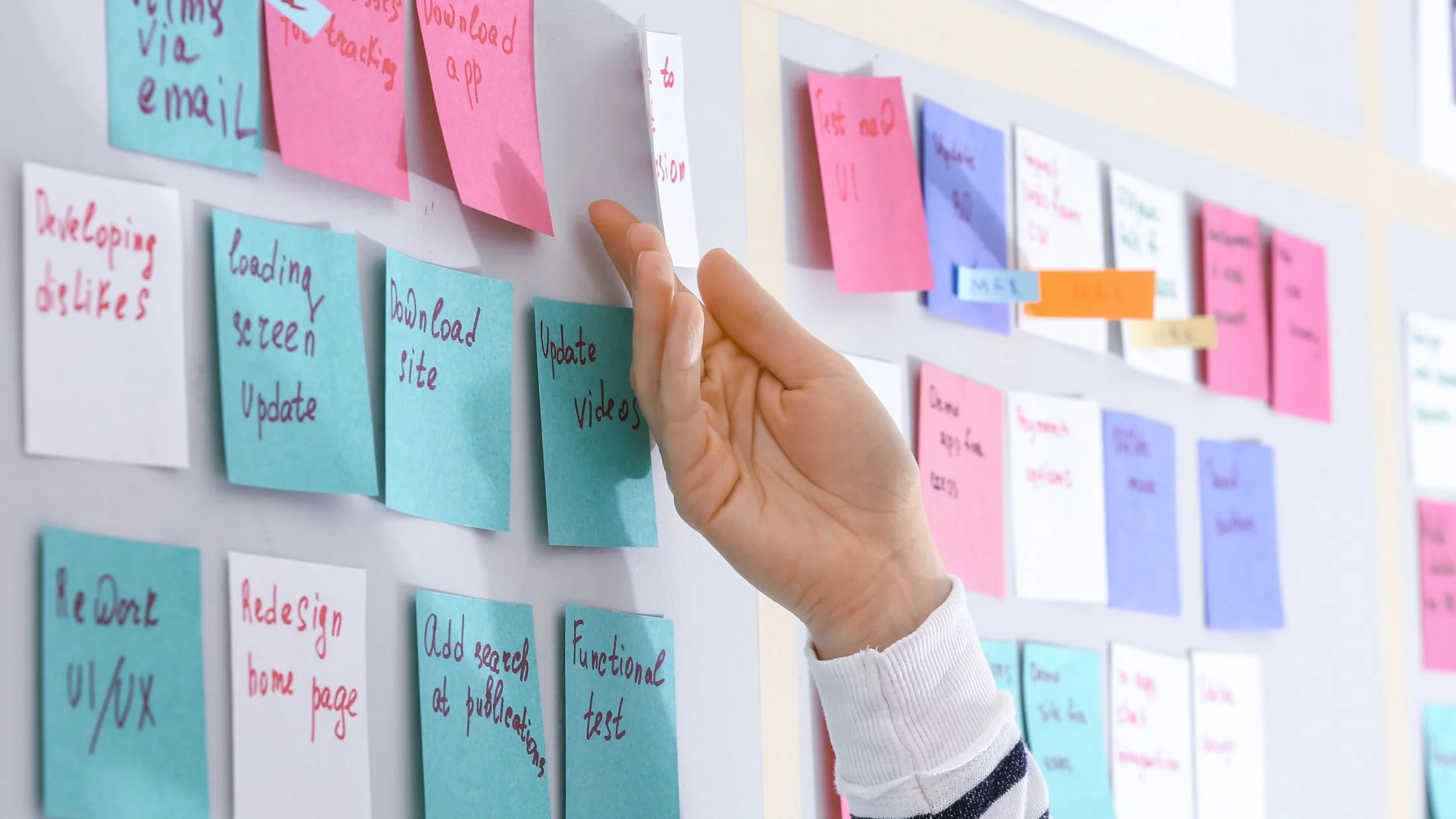The 3 Causes of Burnout Among Library Managers and What to Do About It
Being a library leader often means that your time, attention, and focus are scattered across countless roles, responsibilities, and projects.
Perhaps you work in a public library. One minute you’re meeting with a team member for their performance appraisal, the next you're crafting that budget pitch for an exciting new community partnership. Somewhere in between, you’re trying to manage the unsexy day-to-day tasks like answering emails, changing the desk schedule, following up on incident reports, and reviewing timesheets.
Academic library life? You might begin by diving into database statistics over your morning coffee, then hustle to a lively discussion with faculty about expanding the medieval history collection. Between mentoring bright-eyed graduate assistants and playing tech detective (seriously, why does that journal access keep disappearing?!), you also need to carve out time for your own research passion project.
School librarians, you're the ultimate quick-change artists! Your day bounces from helping teachers find the perfect books to complement their curriculum to teaching fourth graders about reliable internet sources. Lunch isn't for eating—it's for shelving books while helping little ones find "dragons, but not scary ones" with that special warmth only you can offer. Afternoons blur between leading book clubs, fixing iPads or Chromebooks, and squeezing in collection development. You're constantly switching roles—teacher, tech support, reading advocate.
It's a lot. And let's be honest—while you love what your library stands for, some mornings that snooze button is just too tempting when you feel overwhelmed by it all.
Nearly every library director and manager I've coached over the last four years has shared some version of: "I just feel like I'm drowning." If you're nodding right now, first, take a deep breath. You're so not alone in this. And second, I promise there's a way through. Let's talk about the three main burnout triggers I see among passionate library leaders like you and some simple, practical ways to begin addressing them.
The Productivity Paradox: When Your To-Do List Consumes Your Life
Remember your first few weeks in leadership? You had all these amazing ideas for cool programs and innovative services. And then... reality crashed the party. Suddenly, your days were swallowed up by endless meetings, budget drama, and mountains of administrative tasks that kept you from doing what you actually care about.
Here's the first big burnout trigger: when your productivity systems can no longer handle the workload you’re dealing with.
When your to-do list consistently outpaces your human capacity to get things done, stress becomes your constant companion. I can't tell you how many times library leaders have confessed to me that they're answering emails at 10 p.m., working through weekends, or hesitant to even take vacation because of the avalanche of work that will be awaiting them upon their return.
That gnawing feeling of always being behind doesn't just mess with your work—it seeps into everything: your sleep, your relationships, your joy.
Want a quick fix to try this week? Grab a notebook and track where your time actually goes for 3-5 days. Be ruthlessly honest. Then look for tasks you could delegate (yes, even if "it's faster to do it yourself"), eliminate (does that report really matter?), or streamline. Even finding 30 extra minutes a day can give your brain the space it desperately needs to breathe.
If you’re looking to uplevel your productivity game, I suggest checking out the following books:
“Free to Focus: A Total Productivity System to Achieve More by Doing Less” by Michael Hyatt
“Drop the Ball: Achieving More by Doing Less” by Tiffany Dufu
“Essentialism: The Disciplined Pursuit of Less” by Greg McKeown
“Effortless: Make It Easier to Do What Matters Most” by Greg McKeown
The Isolation Gap: Leading Without Support
"I literally have no one I can talk to about this." My heart breaks a little every time I hear this.
Maybe you're the only school librarian providing coverage for multiple buildings. Maybe you're a new library director navigating a new community. Or perhaps, your library’s departments are so siloed that it’s difficult to meaningfully connect with other managers. No matter your personal situation, I want to normalize how lonely library leadership can feel.
Which brings me to the second major burnout trigger: professional isolation. As you've moved up, the pool of people who truly get what you're going through has dramatically shrunk.
This loneliness hits hardest during the tough times—when you're navigating a controversial book challenge, managing budget cuts, or dealing with difficult personnel issues. Without trusted mentors or colleagues who've walked in your shoes, you end up internalizing all that stress. You second-guess yourself constantly. You lie awake wondering if you're making the right calls. And that cycle of self-doubt and anxiety? Total burnout fuel.
What’s the best way to counteract the isolation? Find your people. Whether it's joining a directors' roundtable, connecting with a leadership group on social media, or reaching out to that awesome branch manager from the next county over for coffee—create intentional connections with folks who understand your world. Just knowing you're not fighting these battles alone can make a world of difference.
Here’s a list of additional resources to help you jumpstart your professional relationships:
“Find Your People: Building Deep Community in a Lonely World” by Jennie Allen
“Connect: Building Exceptional Relationships with Family, Friends, and Colleagues” by David Bradford Ph.D. and Carole Robin Ph.D.
“Modern Friendship: How to Nurture Our Most Valued Connections” by Anna Goldfarb
The Cultural Quicksand: When Your Organization Is Part of the Problem
Maybe your productivity systems and time management skills are on point. Perhaps you have a supportive circle of colleagues. Yet something still feels off.
And, that’s probably related to the third and often trickiest burnout trigger: working in a dysfunctional organizational culture.
Let's get real here. Many libraries operate within some seriously complicated systems that seem designed to burn leaders out. Maybe you've got a library board that wants to micromanage what color pens you use. Perhaps your city council or school board expects miracles on pennies. Or you inherited a team where "we've always done it this way" is the official motto.
And, of course, there’s the well-known culture killers like unaddressed conflict, unrealistic workloads, inconsistent leadership, inadequate communication, low (or nonexistent!) accountability, and lack of transparency.
These aren't just annoyances—they're systemic issues that actively undermine your best efforts. That constant tension between your vision for what the library could be and the brick walls you keep hitting? It's exhausting. It's soul-draining. And it's the fastest route to that "why do I even bother?" feeling that marks serious burnout.
Want something concrete you can do this month? Pick just ONE aspect of your organizational culture that's making your life miserable and identify what's actually within your power to change. Maybe you can reshape how meetings are run. Perhaps you can adjust how you communicate with certain team members. Even small shifts in these dynamics can make your daily experience so much more bearable. This exercise also helps you reclaim some of your power over the situation.
Here’s some recommended titles that will teach you how to lean into hard conversations, navigate emotional time bombs, and protect your peace and energetic capacity:
“Crucial Conversations Tools for Talking When Stakes Are High” by Kerry Patterson, Joseph Grenny, Ron McMillan, Al Switzler
“The Next Conversation: Argue Less, Talk More” by Jefferson Fisher
"Collaborating with the Enemy: How to Work with People You Don't Agree with or Like or Trust" by Adam Kahane
"No Hard Feelings: The Secret Power of Embracing Emotions at Work" by Liz Fosslien and Mollie West Duffy
“The Set Boundaries Workbook: Practical Exercises for Understanding Your Needs and Setting Healthy Limits” by Nedra Glover Tawwab
Let's Get Your Spark Back
We've just explored the three big burnout triggers for library leaders: overwhelming workloads without adequate systems, the isolation of leadership, and those toxic organizational dynamics that can drive anyone to their wit's end.
The quick fixes I've suggested can definitely provide some immediate relief—kinda like how Tylenol helps a headache. But if we're being honest with each other, addressing burnout for good requires more than just Band-Aid solutions.
This is where working with a coach (hey there! 👋) can be absolutely transformative. Through our work together, we'd develop systems tailored specifically to your library and leadership style. We'd craft strategies to navigate your unique organizational challenges. And most importantly, we'd reconnect you with why you fell in love with librarianship in the first place.
I also understand if your personal situation is past the point of no return. Your current position has taken too great a toll on your physical, mental, and emotional health. You’re unsure of what steps to take next, but you are 100% sure it’s NOT THIS. In that case, we would work together to craft a thoughtful exit strategy while simultaneously defining a vision of the future that leverages your many talents and allows you to reclaim your joy.
Imagine walking into work and actually feeling excited again. Picture approaching challenges with clarity and confidence, rather than dread. Think about how it would feel to lead from a place of strength rather than exhaustion.
I'd love to chat about how we might work together to make this happen. My complimentary connection calls are pressure-free zones where we'll explore if coaching might be right for you. And even if it's not, you'll walk away with at least one concrete strategy you can implement immediately.





